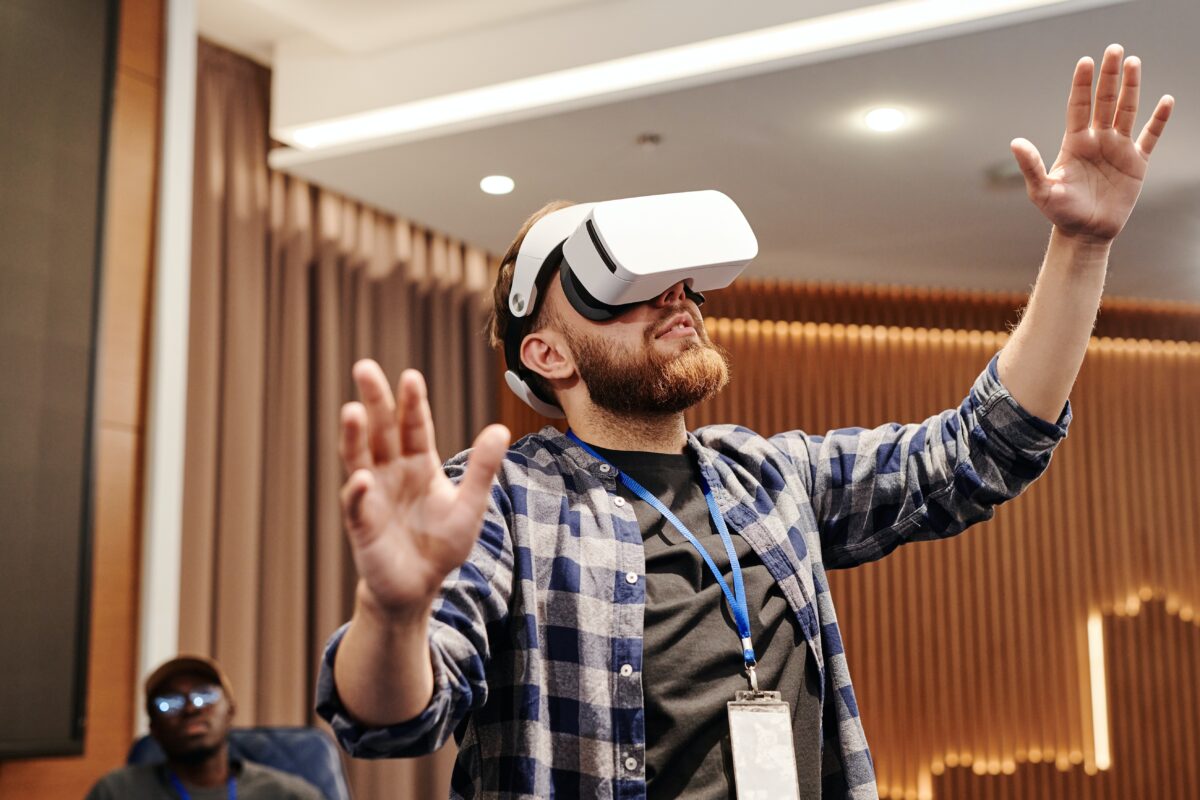As businesses continue to look for new ways to reach customers and create experiences that stand out from the competition, many are turning to the metaverse as a potential solution for marketing purposes.
The global metaverse market is expected to grow from $46.7 billion in 2021 to $475 billion in 2028. This rapid growth is due in part to the increasing popularity of augmented reality (AR) and virtual reality (VR) technology, which are key components of the metaverse.
The metaverse is a digital universe that people can explore and interact with. It offers endless opportunities for businesses, including marketing. Marketing in the metaverse can be an immersive and interactive experience that can allow businesses to reach new audiences and connect with customers in new ways.
While marketing in the metaverse may seem like uncharted territory, there are a number of ways businesses can succeed. By understanding the potential of the metaverse and how to use it in marketing, businesses can tap into a new frontier of marketing opportunities.
What is the Metaverse?
The metaverse is a term coined by science fiction writer Neal Stephenson in his 1992 novel Snow Crash. The term has been popularised by the success of online games such as Second Life and World of Warcraft, which allow players to inhabit virtual spaces and interact with other players from around the world.
Metaverse refers to the convergence of the virtual world and the real world. In other words, it is a world where physical and digital worlds merge. This is made possible by technologies such as augmented reality (AR), virtual reality (VR), and mixed reality (MR).
The metaverse is a persistent, shared, online space where people can meet and interact just like they do in the real world. However, it also allows for new experiences that are not possible in the real world. And with the rise of augmented and virtual reality, businesses are starting to explore how they can use the metaverse in marketing.
Why businesses are marketing in the metaverse?
As the world increasingly moves online, businesses are turning to the metaverse for marketing opportunities. With the ability to immerse customers in interactive, 3D environments, the metaverse provides an unprecedented opportunity to engage with customers on a more personal level.
Businesses can create virtual stores, event spaces, product launches, and other 3D environments that allow customers to explore, interact, and make purchases in a completely new way. And with the use of avatars businesses can create a more personal connection with customers, as they are able to interact with them face-to-face in a virtual space.
Marketing in the metaverse also allows businesses to collect data about customer behaviour and preferences. By understanding how customers interact with their environment, businesses can gain insights into what they like and don’t like, and tailor their marketing strategies accordingly.
Vans, well-known skateboarding apparel and gear brand, has launched a virtual skatepark in Roblox where users can try out new tricks and earn points that they can use to customize their avatars.
The executive team at Vans claims that the metaverse is the most effective medium for spreading brand awareness among their target market of 13 to 35-year-olds. The company claims that more than 48 million people have visited their online park so far.
Also, Gucci, another luxury fashion brand opened the Gucci Garden on Roblox. The online space includes a virtual fashion show, where users can watch models showcase the latest Gucci collection.
Users can also explore the Gucci Garden, which is a virtual replica of the brand’s flagship store in Florence, Italy, and a customization station where users can design their own Gucci products.
That is the type of engagement brands are looking for when they consider marketing in the metaverse. It presents a unique opportunity for businesses to reach new audiences and connect with customers in new ways.
And as the metaverse continues to evolve, it will become an increasingly important platform for marketing initiatives and with the right approach; businesses can succeed in this new frontier of marketing.
How can businesses use the metaverse for marketing?
There are a number of ways businesses can use the metaverse for marketing purposes. Here are a few examples:
1. Creating a virtual store or event space
There are a number of benefits to setting up a virtual store in the metaverse. For one, it gives businesses a far larger potential customer base, as they are no longer limited by location. They can also use avatars and other digital tools to create an immersive experience that is unmatched by traditional brick-and-mortar stores.
Additionally, virtual spaces can be used to test out new products and ideas with minimal risk and expense. And finally, metaverse shops and event spaces provide a unique opportunity for marketing and branding. With careful planning and execution, a virtual store or event space can be a powerful marketing tool.
2. Using avatars to connect with customers on a more personal level
With the rise of the metaverse, businesses have been exploring the use of avatars as a way to create a more personal connection with customers. By using avatars, businesses can create a virtual representation of their brand that can interact with customers in a more personal way.
In addition, businesses can use avatars to provide customer service, offer product demonstrations, and even host virtual events. The possibilities are endless. As the metaverse continues to grow, so too will the use of avatars as a tool for marketing and customer engagement.
3. Creating augmented and virtual reality experiences that allow customers to explore products before they buy them
Augmented and virtual reality offers a unique way to connect with customers and give them an immersive experience that goes beyond traditional marketing. In the metaverse, businesses can create virtual stores where customers can explore products before they buy them. This allows businesses to show off their products in a dynamic and interactive way, and it also gives customers the chance to get a feel for the product before they commit to a purchase.
For example, furniture companies can use AR to allow customers to see how a piece of furniture will look in their home before they buy it. By creating such augmented and virtual reality experiences, businesses can tap into a new and growing market, and they can also give their customers a unique and memorable experience.
4. Using the metaverse for product launches and brand awareness initiatives
As the metaverse becomes increasingly popular, businesses are beginning to explore ways to use this new platform for product launches and brand awareness initiatives.
Many companies are already using the metaverse for product launches, allowing customers to experience the product in a virtual environment before it hits the shelves. This allows businesses to generate hype and excitement around a new product, while also getting valuable feedback from customers.
Metaverse can also be used for brand awareness initiatives, such as virtual events and pop-up shops. By creating a presence in the metaverse, businesses can reach a whole new audience and build their brand in a fun and interactive way.
5. Developing marketing campaigns specifically for the metaverse
As marketing efforts continue to move online, many companies are turning their attention to the metaverse as a new frontier for marketing campaigns. It offers a unique opportunity for businesses to reach customers in a completely new way.
While developing marketing campaigns specifically for the metaverse may seem like a daunting task, there are a few key considerations that can help to make the process more manageable.
First, it is important to consider the unique characteristics of the metaverse audience. This includes understanding their needs and desires, as well as how they prefer to interact with brands. These campaigns should be designed to engage customers and give them a reason to visit your business in this new digital world.
Additionally, businesses should consider the ways in which they can create an immersive and interactive experience that will engage customers on a deeper level. By taking the time to develop targeted marketing campaigns specifically for the metaverse, businesses can tap into a powerful new platform for promoting their products and services.
The future of marketing in the metaverse
The metaverse is a rapidly growing platform with immense potential for businesses to connect with customers in a new and exciting way. From creating virtual stores and product demonstrations to developing marketing campaigns specifically for the metaverse, there are a number of ways that businesses can take advantage of this new platform.
By understanding the unique characteristics of the metaverse audience and designing immersive and interactive experiences, businesses can tap into a powerful new tool for marketing their products and services. And as the metaverse continues to grow in popularity, businesses that are able to effectively utilize this new platform will be well-positioned for success.
If you’re looking to create immersive and interactive experiences for your customers, Awvent can help. We specialize in creating AR/VR experiences that are designed to engage and excite your customers in the metaverse environment. Contact us today to learn more about how we can help you take your marketing efforts to the next level.




